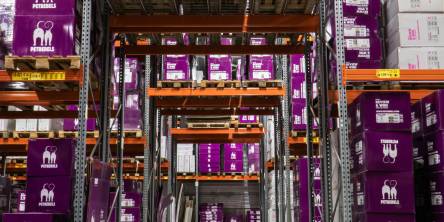Magento vs Drupal Commerce: Which One Should You Pick?

As the world continues to evolve at a break-neck pace, the market has witnessed numerous changes. Among all these changes, perhaps none has proven to be quite as consequential as the emergence of e-commerce. Though the concept is just a few decades old, it has already established itself as one of the mainstays of the global economy. It comes as no surprise, though — after all, e-commerce and online stores have given consumers convenience quite like no other. Today, people can shop for everything — from clothes to furniture — online. So, it is understandable that the industry would prove to be such a massive hit. Now, all of this is great — but it has meant quite a bit of competition for brick and mortar stores, which too are now embracing the concept of online stores to stay competitive in the cut-throat market.
As more and more retailers take to the concept of e-commerce and online stores, they must first contend with various questions. Among the first and the most important ones they need to answer is: Which platform to use for e-commerce development? Of course, given the demand for online stores, the market has virtually countless options to offer as well. Thankfully, most companies' choice comes down to Drupal commerce and Magento — the two most famous names in the market. How does one go about deciding which one of the two is better suited for their business’ requirements? With this handy guide, of course.
1. Headless e-commerce: With the modern iterations of Drupal commerce, the focus has been increasingly on API-driven implementation. This translates into improved availability of e-commerce functionality across distinctive host environments, making the solution increasingly platform-independent. Interestingly, Magento does this equally well — it is not only more UX-friendly. However, it is also able to put advanced PWA tools to fair use.
2. Scalability: Drupal for web application development in e-commerce aims to be a self-hosting solution and comes with the assured ability to ensure high-performance levels at scale. Its web server requirements aren’t as extensive as that of Magento, making the former a very desirable solution. Magento, on the other hand, has been integrated into Adobe cloud. This means scalability won’t be a problem at all with Magento, too — but only if you are willing to pay quite the premium for it.
3. Pricing: Drupal is an open-source offering, i.e., you don’t have to pay anything to use it. But that doesn’t mean development with it comes free of charge — you will be required to pay for growth as well as maintenance to ensure the store remains a high-performing and valuable offering. The costs can quickly pile up based on the scale and complexity of the store. The arrangement is pretty much the same with Magento — you get three options to choose from Open Source, Commerce, and as part of Adobe Commerce Cloud.
4. Security: Drupal Commerce has a distinct advantage over its contemporary in this regard, thanks to its inherent focus on safeguarding the e-commerce platform. Its lowest infection rate supports this assertion as compared to other solutions. Now, that’s not to say that Magento isn’t competent enough in this regard — it offers the ability to adopt avant-garde methods and tools aimed at delivering top-notch levels of security for the online store. There’s also Magento Patch, a tool that scans to track unauthorized access and protect the store against malware.
There are plenty of other considerations and factors to evaluate to decide if they should opt for Drupal for web application development or go with Magento. However, this guide will get you started on the journey to making an informed decision about which one of the two leading options in the market you should pick.
Similar Articles
For modern businesses to thrive, ensuring the effective management of inventory stands has become vitally important. Inventory management stands as a cornerstone of success. And the emergence of the Internet of Things (IoT) has introduced a new era of connectivity and efficiency across diverse industries.
Do you know what the following e-commerce companies have in common: Amazon, Walmart, eBay, and more? All of these e-commerce companies' apps make use of Java. Java is decidedly among the leading choices of programming language for e-commerce applications because it offers a world of benefits; for example, since Java code can be run on any platform with a Java Virtual Machine (JVM), users of e-commerce apps made with Java can access the said apps on a variety of devices.
Nikola Tesla in 1926, once described what is now called a mobile phone as a telephone that can fit into one's “vest pocket.” As otherworldly as that idea was then, nearly a century later, the reality is even more astounding.
Given the staggeringly high amounts of data being generated worldwide every single day, it ought to come as no surprise that organizations often struggle to pick the right tools to help them effectively harness the potential of all their data.
Managing properties can be a difficult task with the right tools. Property owners must find and use the best property management software. It can be a long and tedious process as there are many options in the property management software market.
In the ever-evolving financial services landscape, industry challenges are numerous and complex. From stringent regulations to rapidly advancing technology and changing consumer expectations, financial institutions face many obstacles.
The human learning capability is a great resource for helping technology evolve and grow, breaking boundaries, and creating new ones. Emulating the ability of humans to learn at a gradual but retentive pace, Machine Learning is the latest power monster that is redefining human-machine interaction.
In the ever-evolving landscape of low-code development, Microsoft's Power Platform stands out as a powerful tool for building custom applications. In today's dynamic digital landscape, creating and managing web pages is no longer the exclusive realm of professional web developers
In the data-driven business world, where information is of utmost priority, organizations are increasingly turning to data warehousing and data marts to harness the power of their data. These data management solutions are pivotal in transforming raw data into actionable insights.









